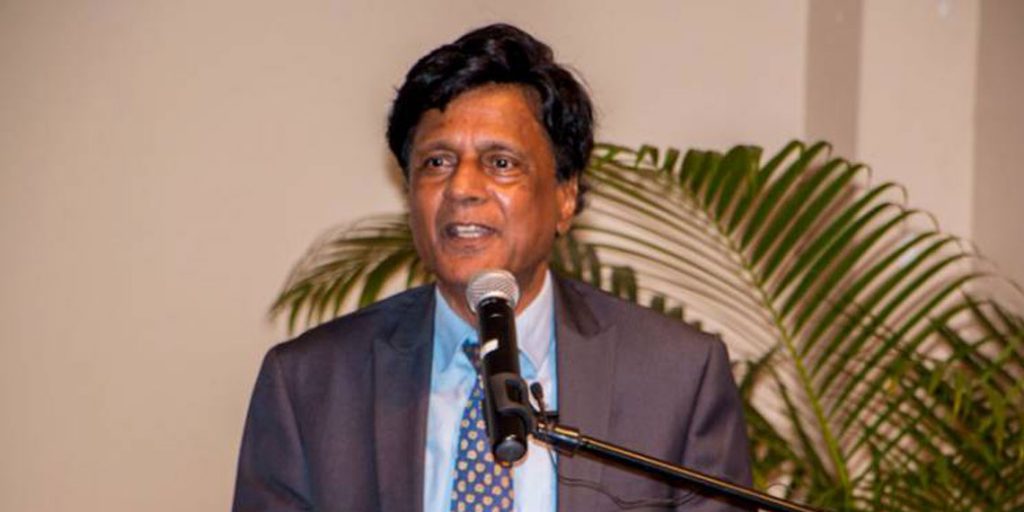I believe that the government’s call for a “One Guyana” is to remind us, the citizens of this country Guyana, that we must see it as a “common venture”. And no one can argue with this, even as we must reject conceptions of “oneness” that are oppressive to our existing diversity. The representation of our “six peoples” on the just-released $2000 Bill signals to me that the ideal is a unity of a “One Guyana” state with the diversity of its nation as six ethnicities. That “nation” and “state” are not identical and must be disarticulated, while creating a commonality of outlook as “Guyanese”, is acknowledged.
Whether we like it or not, the modern state is a reality: it is the unit within which we act, and has sovereignty in the international arena. At independence, the reality of our coming together ensured we had no common culture “looming out of some immemorable past” as some other countries had. People identify with the state to the extent they see themselves reflected in it – and that’s partially why some keep on honouring their ethnicities. The challenge is how do we, within our Guyanese state, construct a “unity” of our peoples that accepts our diversities.
We propose that we demarcate our cultural sphere as a private one, with minimal state intervention, and build the overarching unity we need in the public sphere. What we are suggesting is that we move from the idea of a unitary “national culture” as a site for identification to the shared practice of a political ideology as the basis for engendering such identification with the state of Guyana. Rather than those, such as Rex Nettleford for example, who demand that all ethnic groups assimilate into Creole culture to become “one nation”, we propose that a feeling of “we, the people” – of “Guyaneseness” – can be engendered in the process of our conscious construction of a democratic state.
We situate this construction of a national outlook within what we have labelled “Project Democracy” – the creation of conditions wherein we are all treated as one, equally, by the state. Equality of opportunity; human rights, encouragement, of diversities, due process; justice and fair play and rule of law may seem dry compared to the warmth of the blood ties of some “one nation”, but they can engender the unity of public purpose and the recognition of individual worth wherein we can be proud of our common citizenship. Citizenship of Guyana has to become something that has concrete meaning to all of us.
Universalism is never power-neutral; its defenders always have a certain interest in it. Contra to the proponents of the universalism of Creole Culture for the Caribbean and Guyana, we should not repeat the American mistake (they privileged European culture) here and privilege any one group’s culture. Similarly, since the state itself has to justify its legitimacy through the goals of all its citizens living by the principles and values of its ideology, the status quo will inevitably be challenged by those excluded. The movement towards allowing citizens to constantly authenticate themselves ideologically is always enabled: multiculturalism becomes part and parcel of the “nation by design”. The present Ministry of Culture signals a singular culture, but a “Ministry of Multiculturalism” which focuses on practices that empower all cultures, is more appropriate for our reality.
For Guyana, then, our ethnicities would be defined outside our “Guyaneseness” and to be African-Guyanese, Amerindian-Guyanese or Indian-Guyanese etc would not be contradictory in any sense. The first part of our identity would be specific, while the latter universalistic. The “nation” would now be a heterogenous space that ethnically imagined communities can live in and even voluntarily share as we increasingly do with foods. To be Guyanese would be to share moral precepts – norms, values and attitudes – rather than shared cultural experience and practice.
Guyana is therefore at a critical juncture, where we are attempting to get a handle on ensuring that state power is equitably distributed even as we face a deluge of outsiders. Multiculturalism is not just about cultural practices; it is also a signifier of the power relations of the society. It is only when power is distributed equitably that the ideological values mean anything to the culturally embedded individual.
This, I believe is the content of a national identity for One Guyana
By Ravi Dev
